Recipe Overview
Why you’ll love it: Balsamic reduction is a simple sauce that can elevate a dish to the next level, and it’s so easy to make at home! It only takes one ingredient and just a little time to create your own balsamic glaze.
How long it takes: 30 minutes
Equipment you’ll need: small saucepan
Servings: 16 (makes 1 cup)
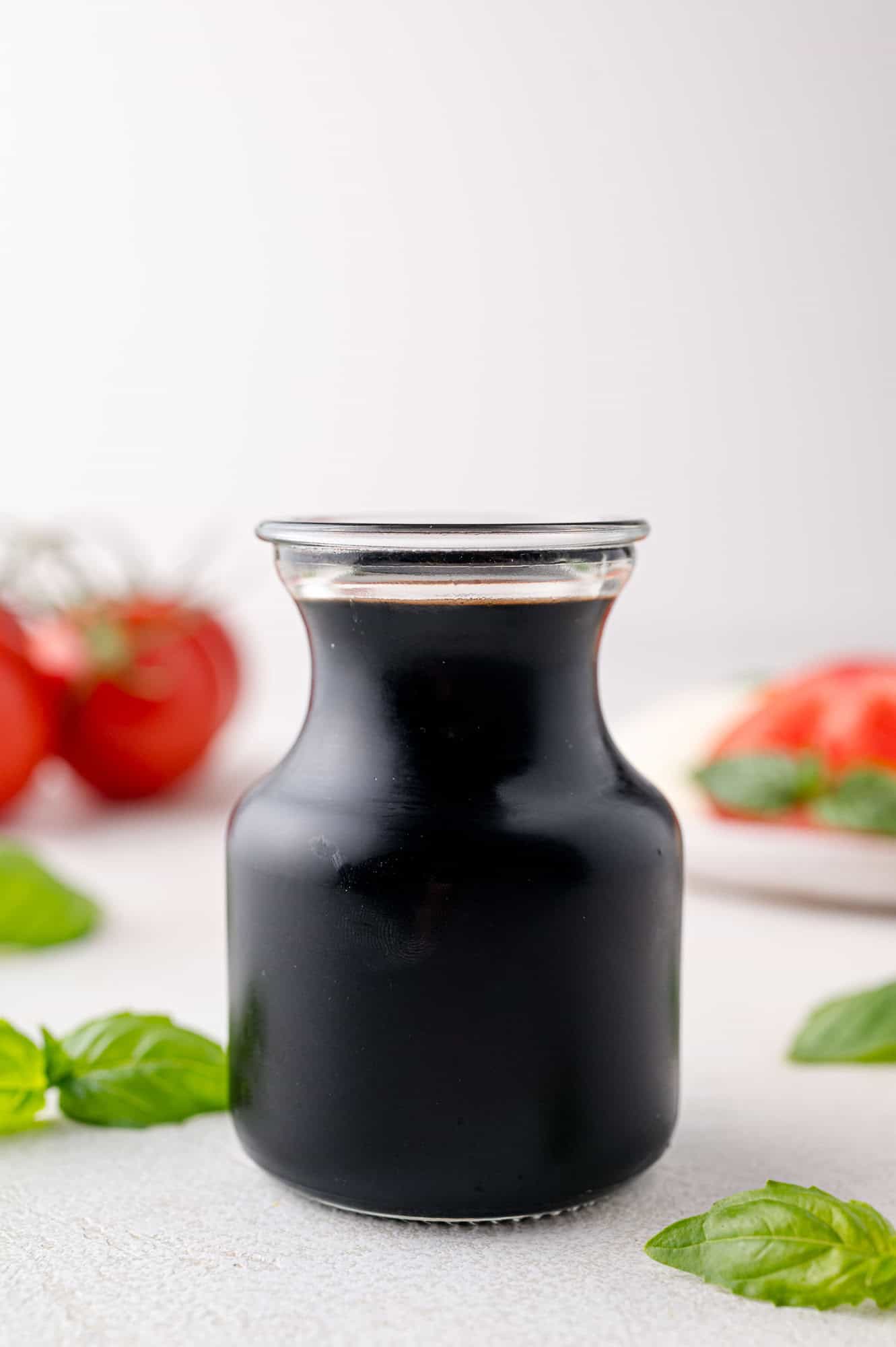
Caprese salad is one of my favorite things to eat all summer long. I don’t know what it is about the simple combination of tomatoes, basil and fresh mozzarella but it’s a win every time. Whether it’s drizzled with high-quality olive oil or a balsamic reduction (or both!), it’s always delicious.
(Do you love caprese as much as I do?! Try my caprese turkey burgers and caprese pasta salad recipe next.)
But caprese salad is kind of a gateway because once you introduce balsamic glaze into your cooking repertoire, you’re always going to want a bottle of it in your fridge. It stores well so you can make a big batch and it might last you all summer. Quite possibly, it might only last you two days—seriously, this is good stuff and you’ll want to put it on everything.
Homemade Balsamic Reduction
Better than store-bought. While they are convenient, a lot of grocery store balsamic glazes are cloyingly sweet, without the balance and depth of homemade balsamic glaze made with a good vinegar. Popular commercial products include extra ingredients like artificial colors, modified starch, and xanthan gum. I think you’ll agree that it’s absolutely worth making it yourself!
Easy to make. And why wouldn’t you make it at home when it’s so easy, it’s almost effortless?! It’s just a matter of pouring the vinegar into a pan and boiling it until it’s reduced to a syrup, that is, a balsamic reduction.
A simple way to jazz up so many foods. It’s not just for caprese salad! Balsamic glaze has the ability to elevate so many dishes. It’s great drizzled on grilled meat (try it on chicken or steak), salads, appetizers, and roasted or grilled vegetables.
Recipe Tip
Although balsamic glaze is most often paired with vegetables, cheeses, and other savory foods, it’s also fantastic with fresh fruit. Drizzle it over sliced peaches, plums, or strawberries.
Ingredient Notes
Balsamic Vinegar: Choose a good quality balsamic vinegar to make a reduction. When you reduce anything, you concentrate its flavor; a low-quality vinegar will taste even worse when boiled down. Check the ingredient list. The balsamic vinegar should be made only with grapes, without caramel coloring or added sugar. The ingredient list may say “grape must” which is simply the juice of pressed grapes (in Italian, “mosto”).
How To Make Balsamic Glaze
Bring to a simmer. Add the vinegar to a saucepan set over medium heat. Let it come to a simmer. It should be bubbling lightly, but not boiling like crazy. If the vinegar smell is too strong for you, crank up that kitchen exhaust fan or open a window! I kind of like the smell and maybe you will, too.
Thicken. Reduce the heat to medium-low. Keep the balsamic vinegar simmering until it’s reduced by half. (That means that half of the vinegar will evaporate as it cooks.) At first, the vinegar won’t need much attention but as it becomes thicker, keep a close eye on it; it can start burning quickly and once it does, there’s no salvaging it.
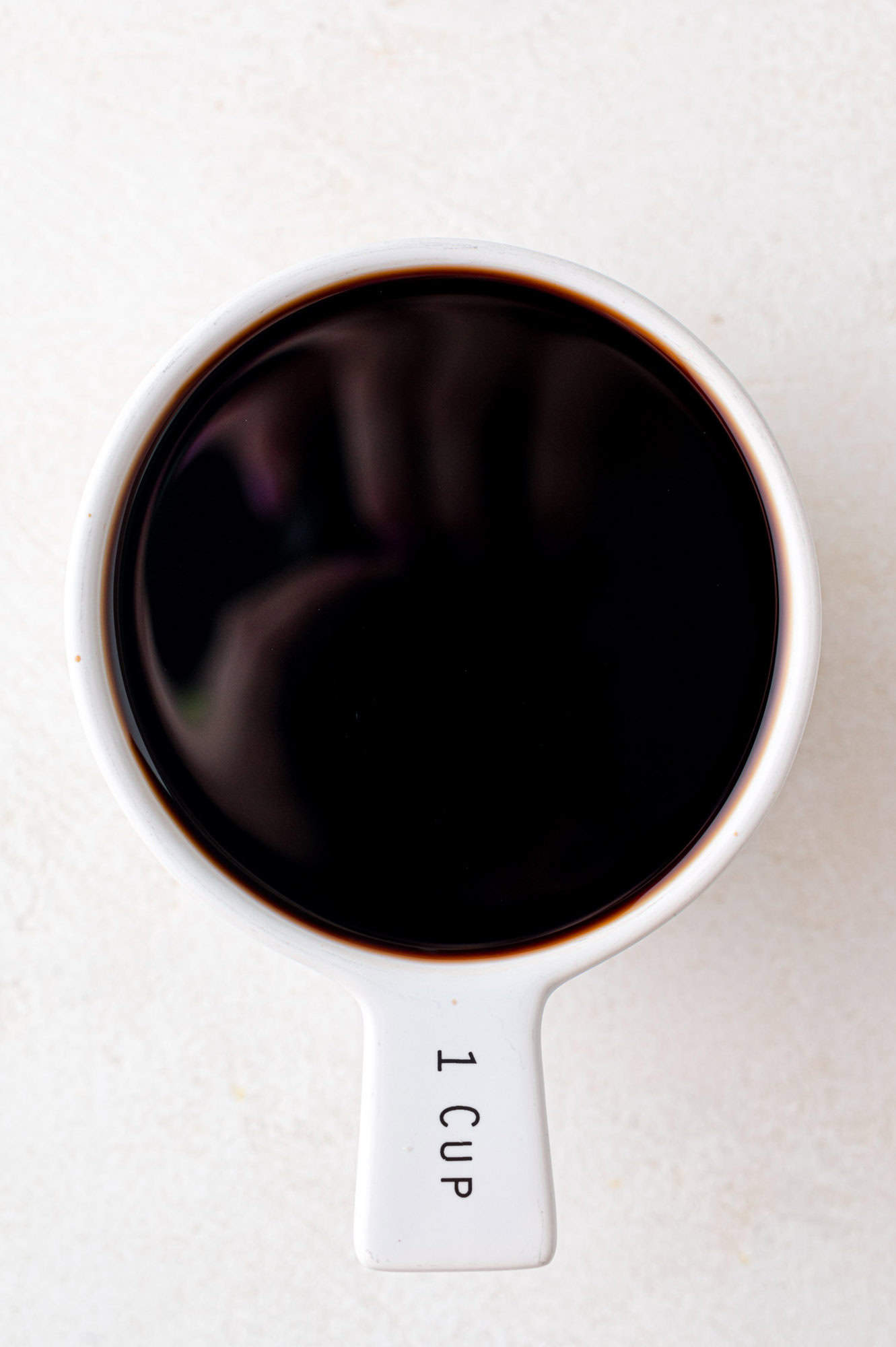
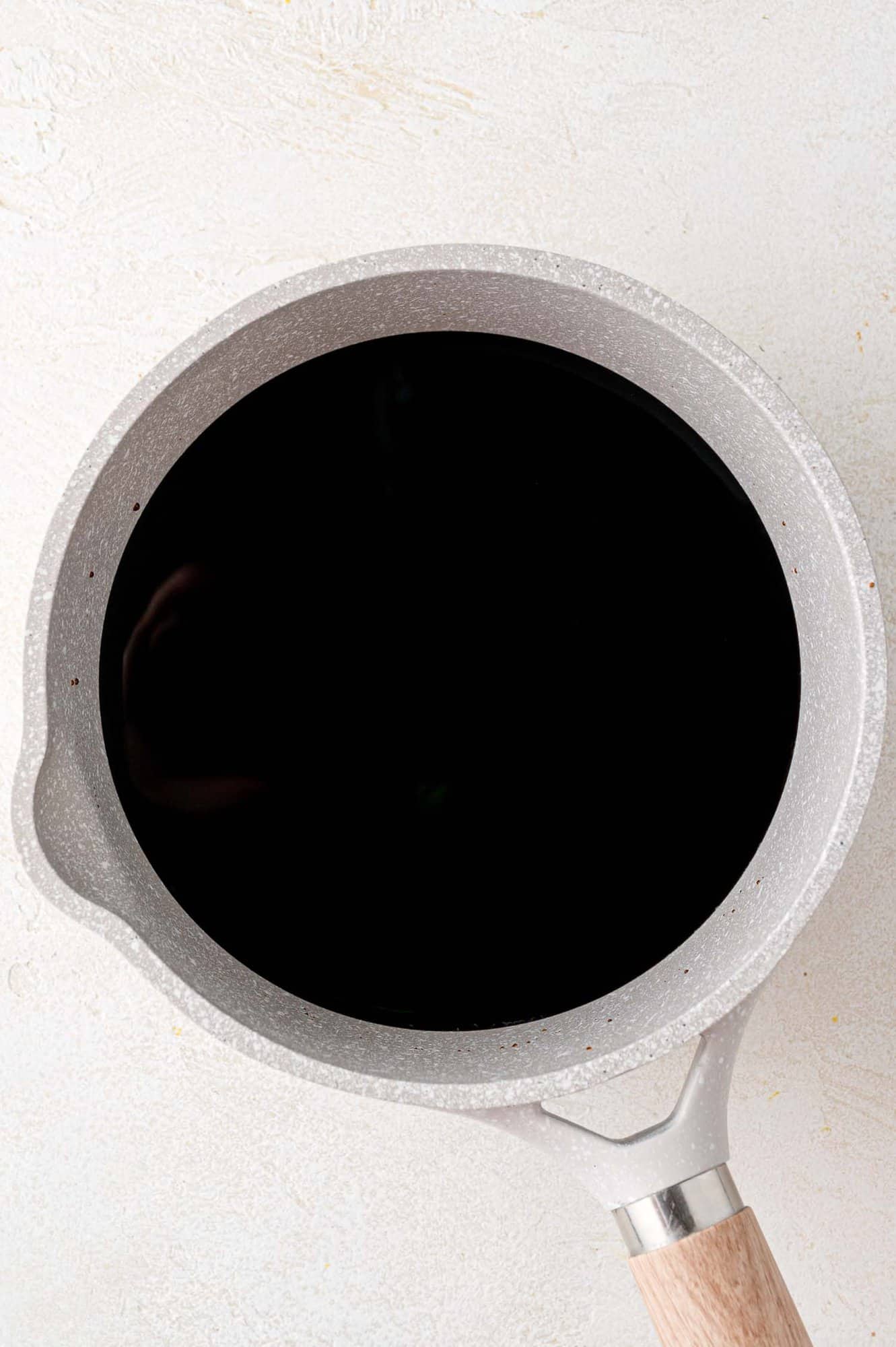
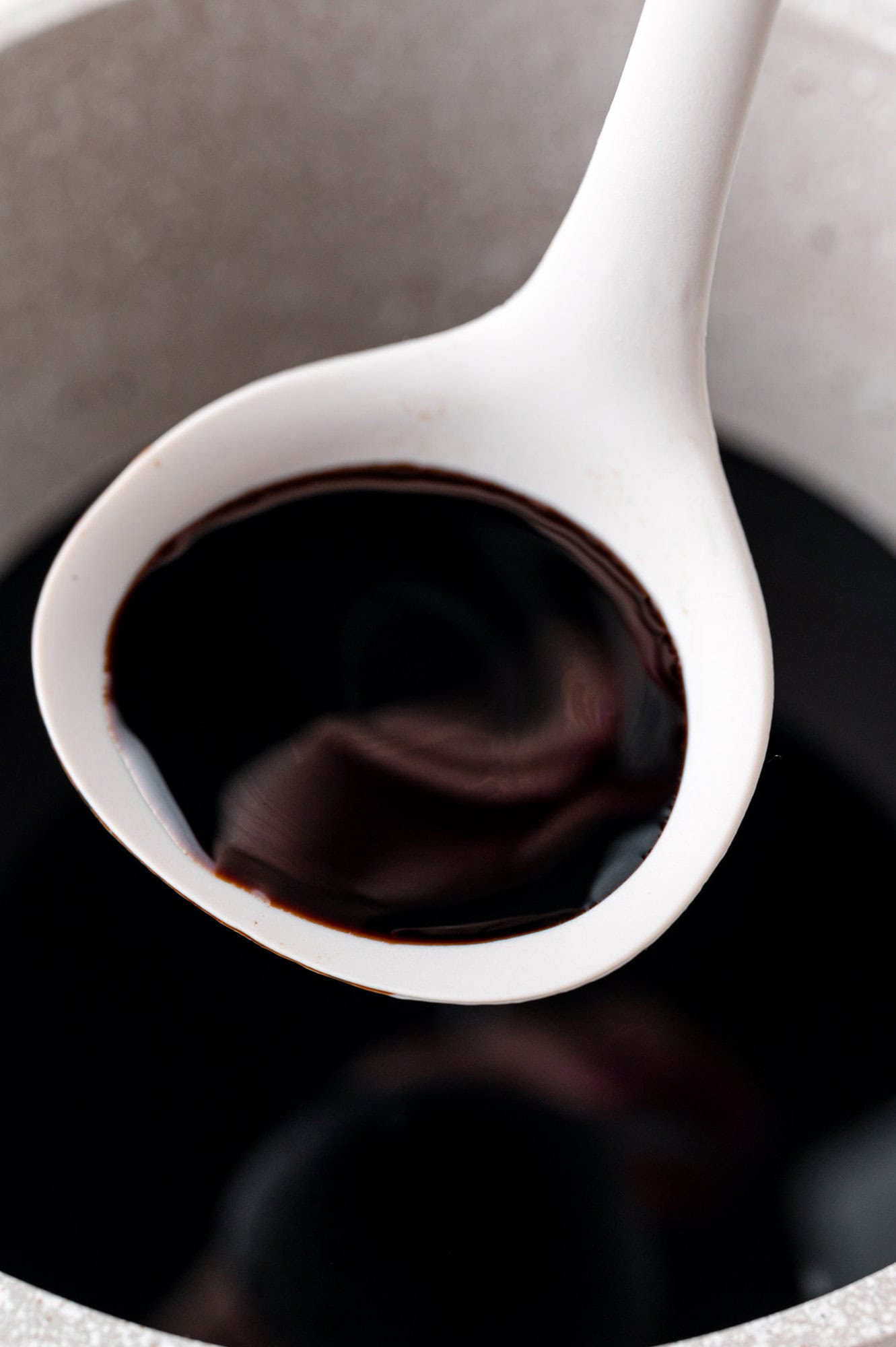
Cool. Remove the pan from the heat and let the balsamic glaze cool to room temperature. Use it right away or refrigerate it in a small jar or container until you’re ready to use it.
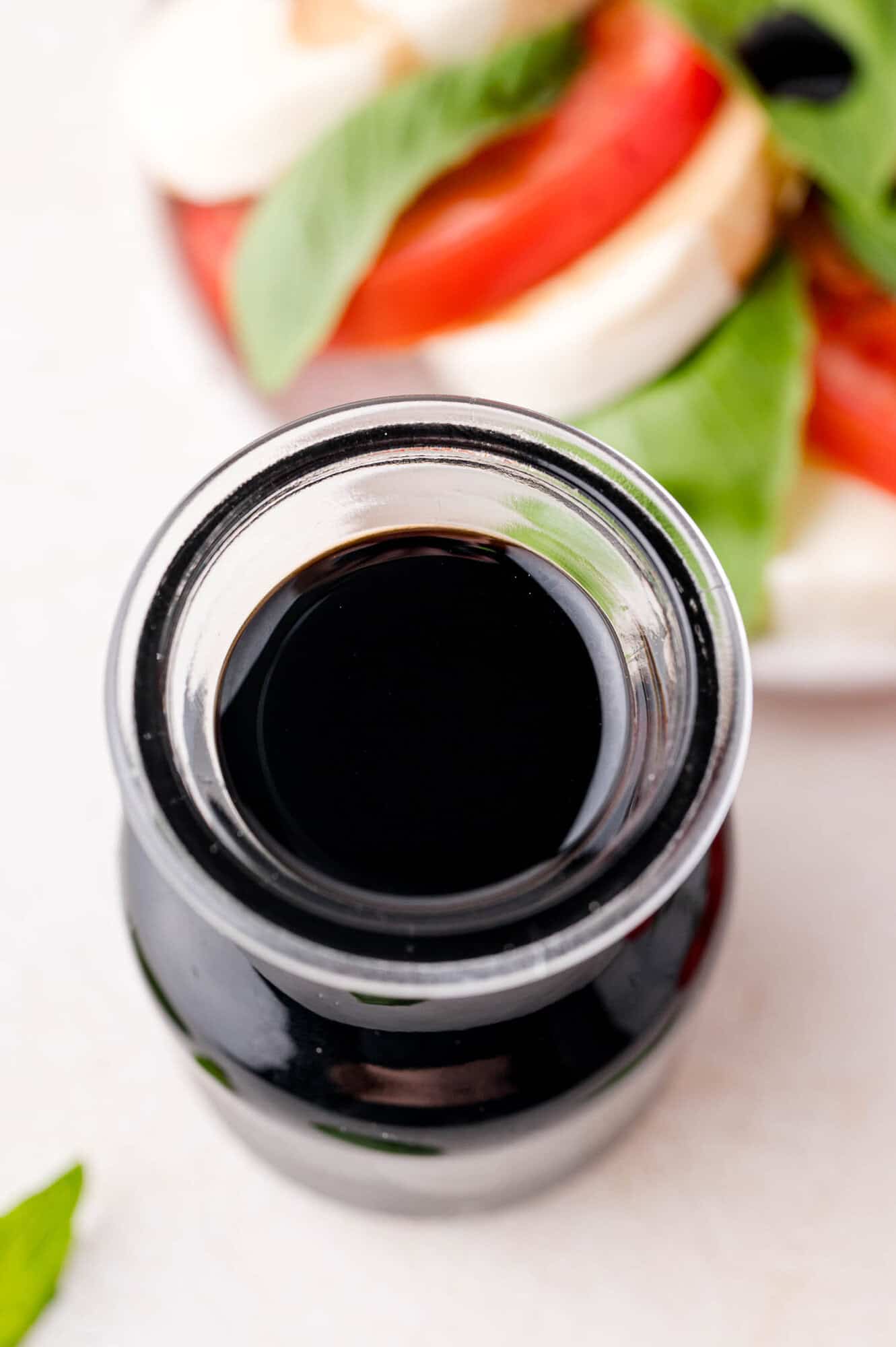
Helpful Tips
- Keep in mind that it will thicken more. As the glaze cools, it will thicken further. If, after it cools, you find it’s thinner than you’d like, bring it to a simmer again and cook it more until it’s the desired thickness.
- Seriously, really keep an eye on it. Not only does over-cooked balsamic glaze blacken and taste foul, it also takes on the consistency of tar and can harden in your pan, which is nearly impossible to clean up. (If this does happen to you, pour water in the pan with the vinegar and bring it to a boil; this will help loosen things up a bit, especially if you gently encourage the loosening with a wooden spoon. Get off as much as you can while the water is boiling on the stovetop, then use a scouring pad or scrubber when washing the pan to remove the rest.)
- Make it sweeter. If you want the syrup to be even more sticky sweet, you can add sugar or honey to sweeten it up a touch. I find that the vinegar gets sweet enough as it simmers down and reduces but if you have more of a sweet tooth, you might want to try adding a couple tablespoons of sugar or honey to the vinegar before you boil it.
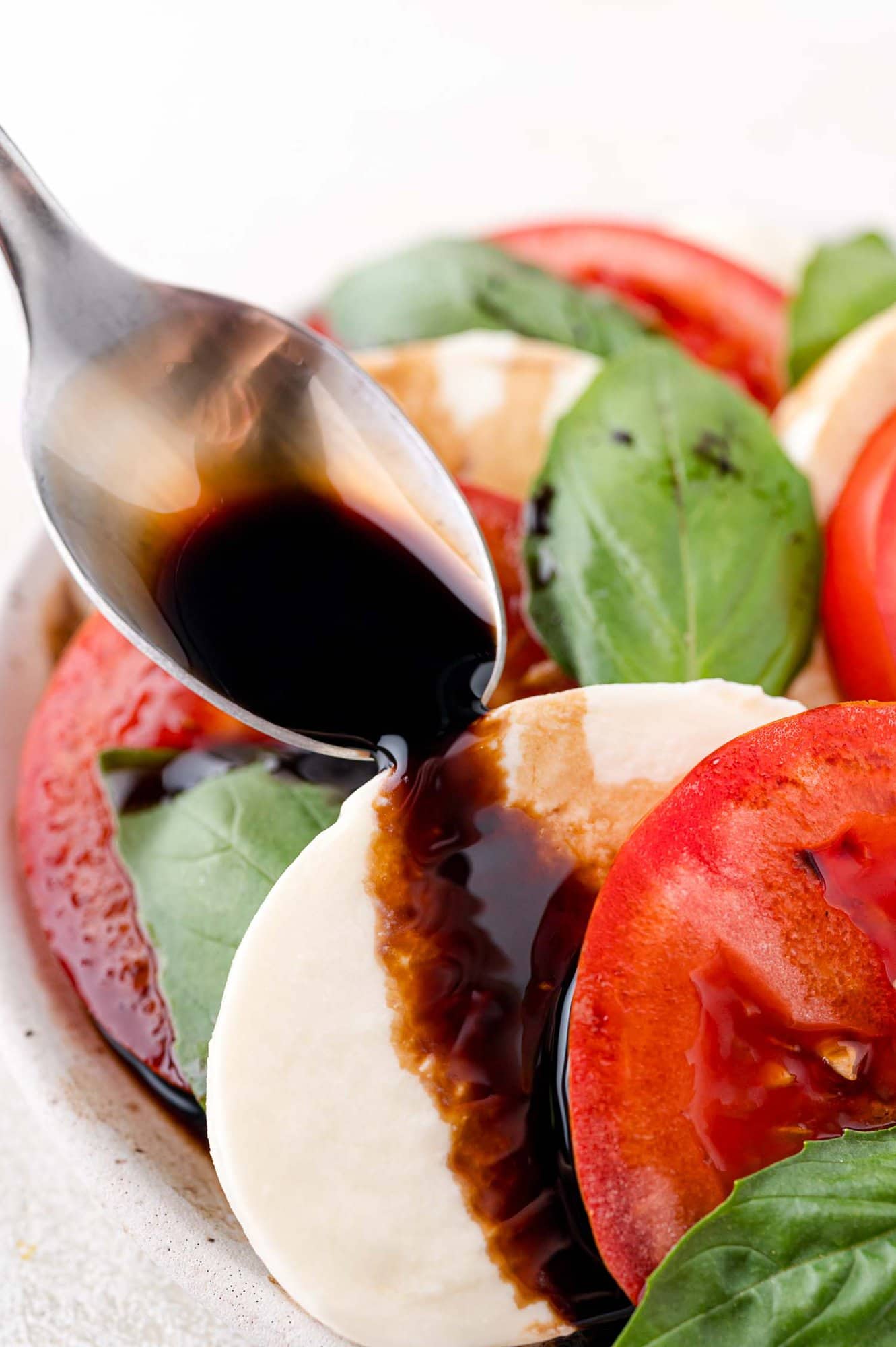
What Do You Use Balsamic Glaze For?
This list is by no means exhaustive but it will get you started.
- Quinoa Bowl with Roasted Tomatoes and Ricotta
- Grilled Peach Salad with Burrata
- Goat Cheese Steak
- Easy Tomato Bruschetta
- Asparagus Gruyere Tart
- Roasted Asparagus or Easy Air Fryer Asparagus
- Balsamic Roasted Vegetables
- All roasted vegetables!
Cool the reduction to room temperature. Pour into a small jar. Cover tightly and refrigerate for two to three months. If it thickens too much, reheat until it’s the desired consistency.
More How-To Recipes
Pin this now to find it later
Pin ItBalsamic Reduction – How to Make Balsamic Glaze
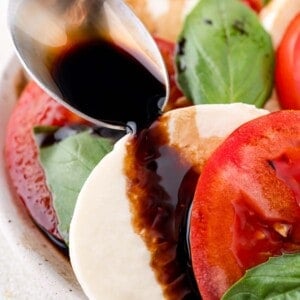
Ingredients
- 2 cups balsamic vinegar (choose a good quality vinegar)
Instructions
- Heat vinegar in a saucepan over medium heat until bubbling. Reduce heat to medium-low and continue to simmer until reduced by about half and thickened. This may take anywhere from 10 to 30 minutes. Keep an eye on it to make sure it's not boiling rapidly, just a low simmer is perfect. As the reduction thickens, stir frequently to make sure it doesn't burn.2 cups balsamic vinegar
- Cool to room temperature. Serve, or pour into desired container, and refrigerate. Makes about 1 cup.
Notes
- Storage: Store in a tightly covered container or jar. A clean recycled jar is fine. Keeps for two to three months in the refrigerator.
- Make it sweeter: Add 2 tablespoons of honey, brown sugar, or granulated sugar to the vinegar. Cook as directed.
- Smaller Batch: If you’d like a smaller batch, simply use 1 cup of vinegar instead of 2. Cook time will decrease.
Video
Nutrition
Nutrition information is automatically calculated, so should only be used as an approximation.
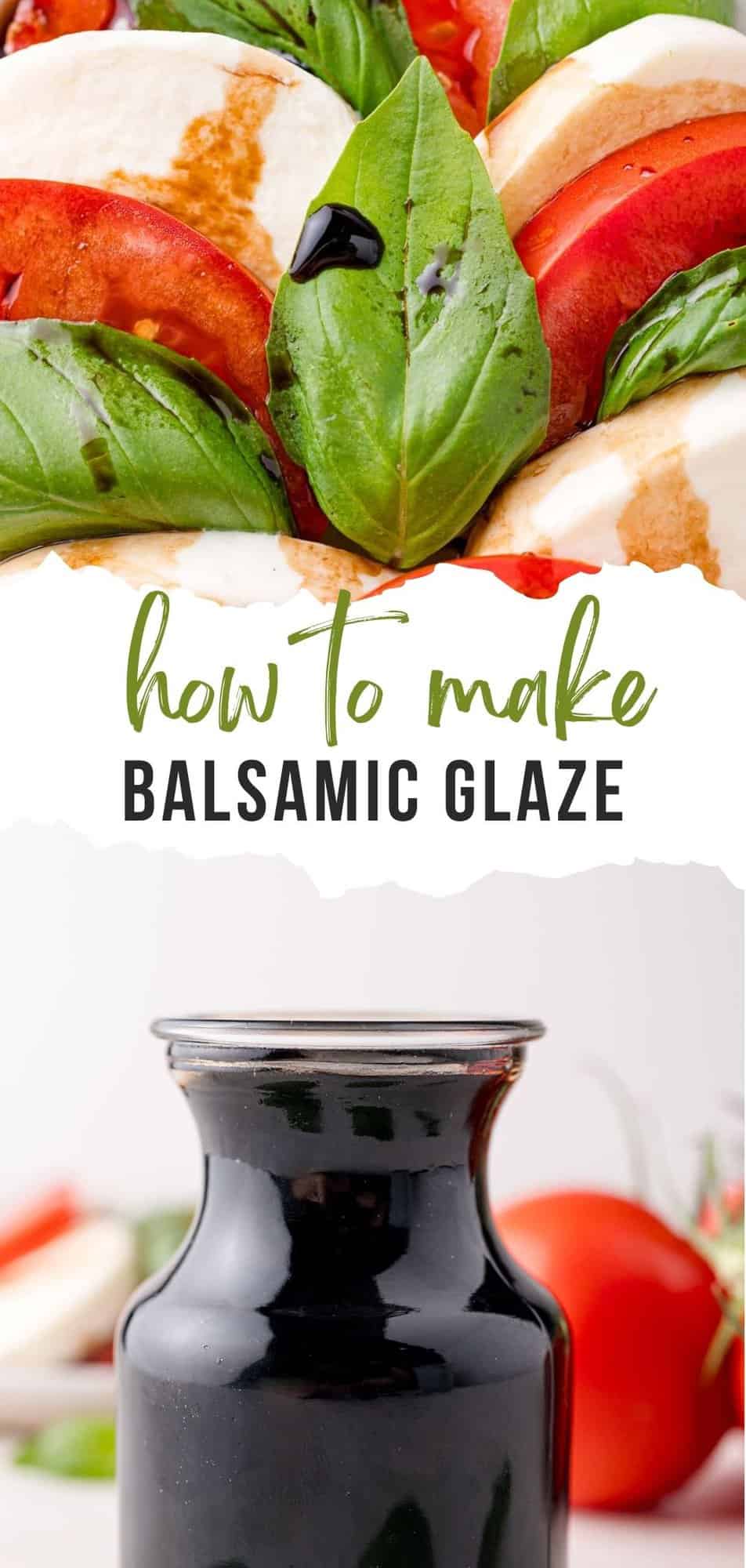
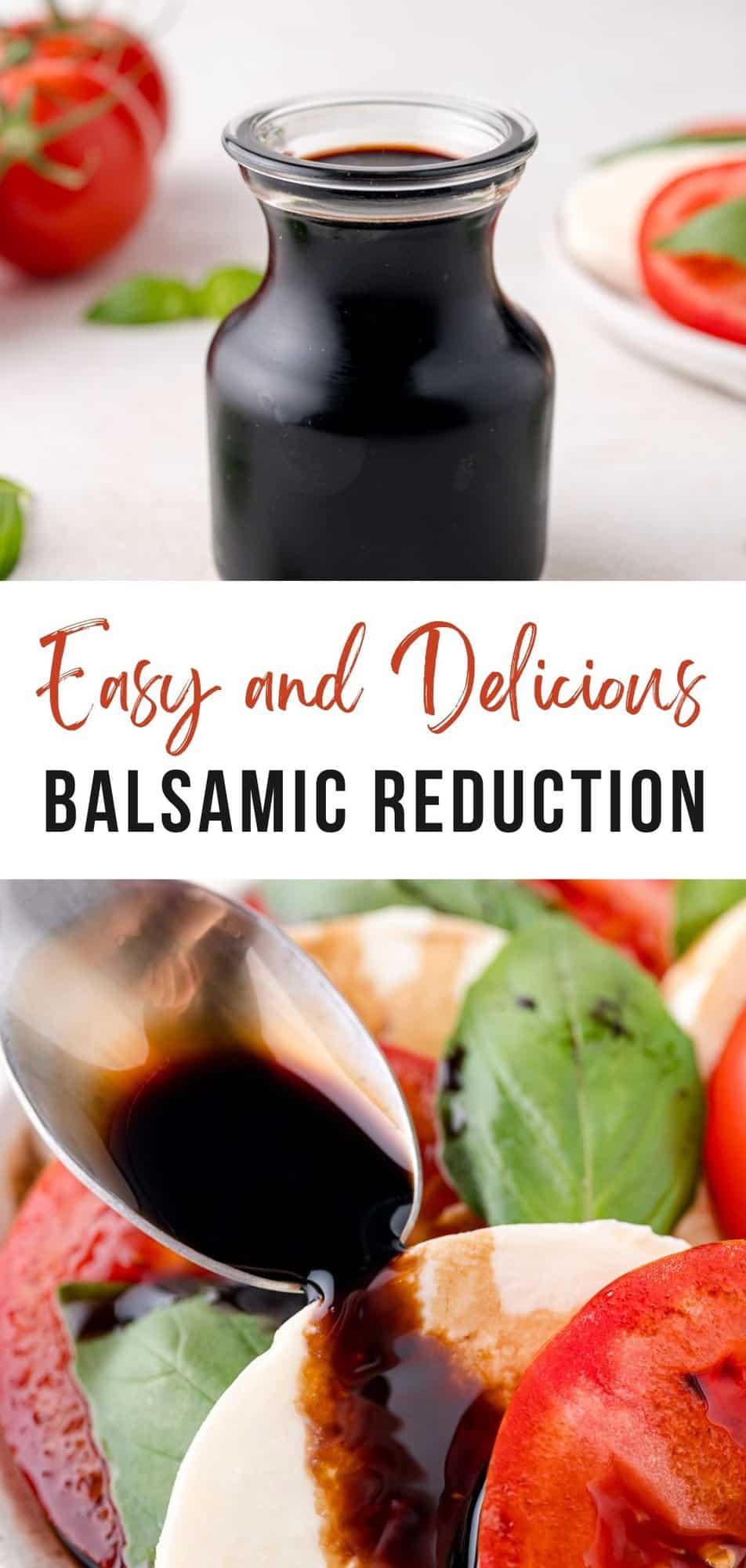
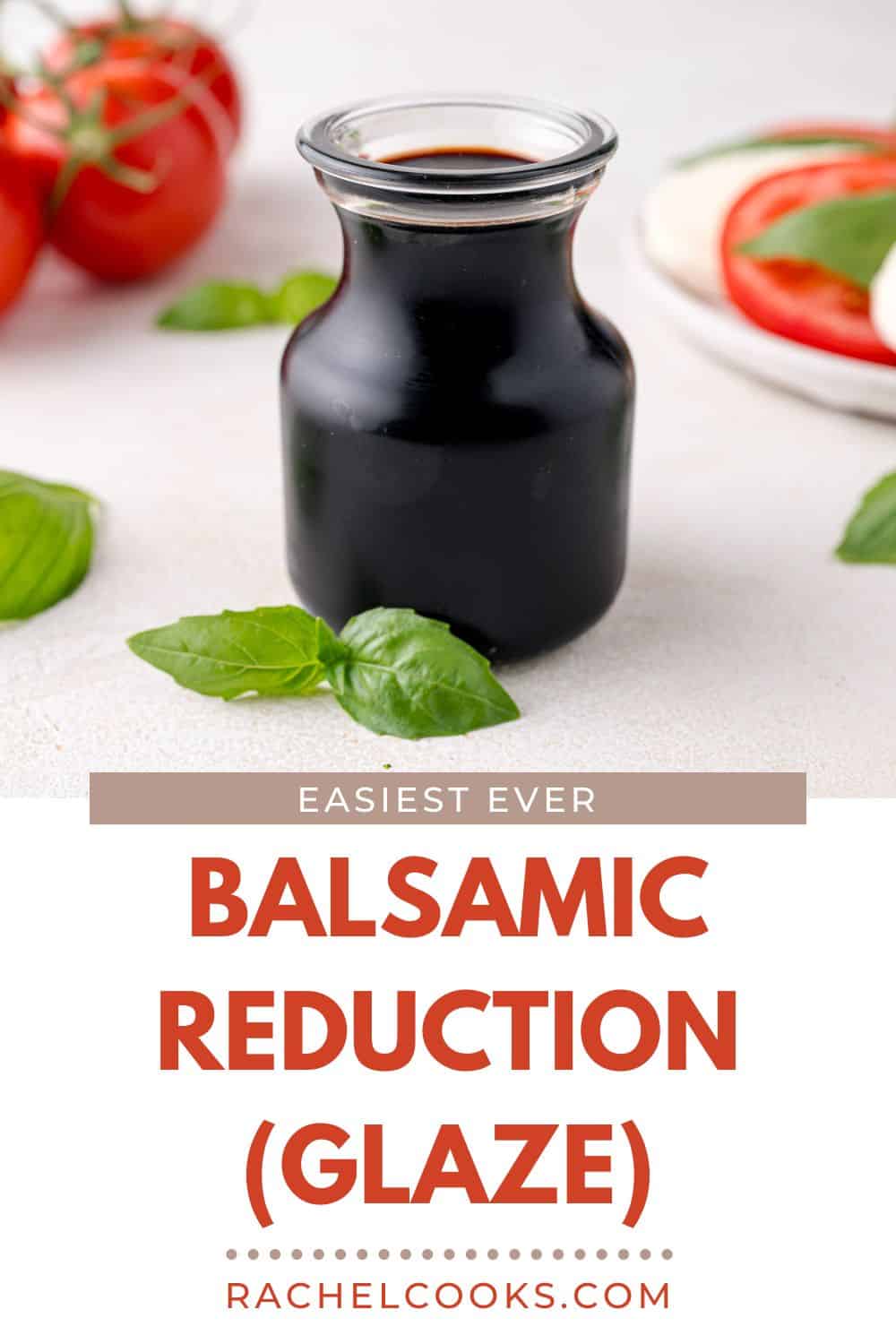
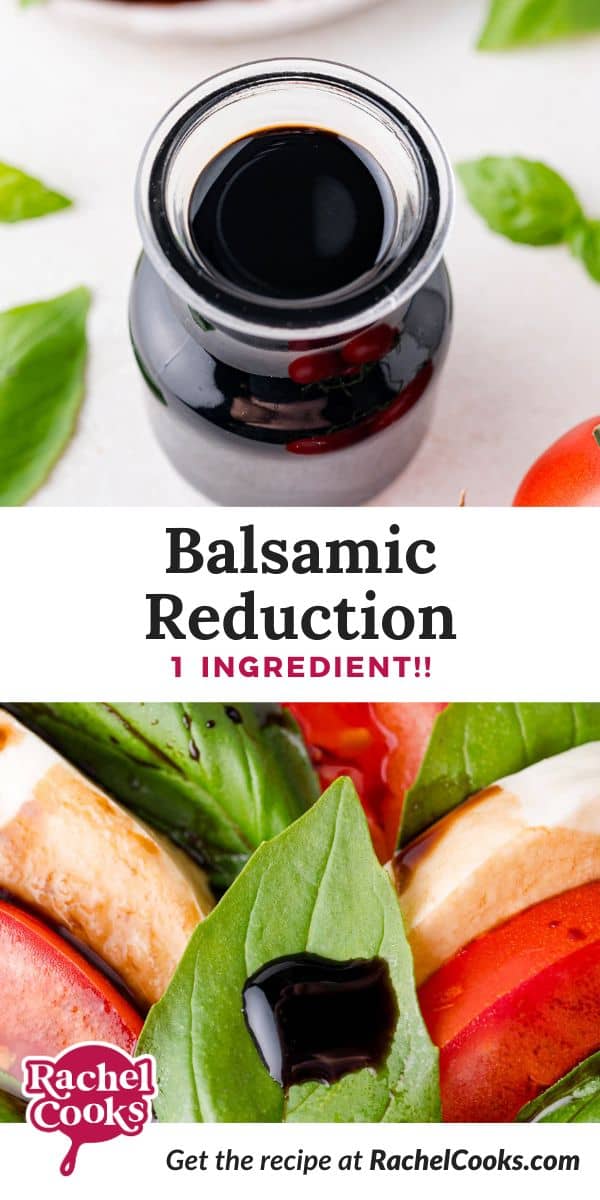
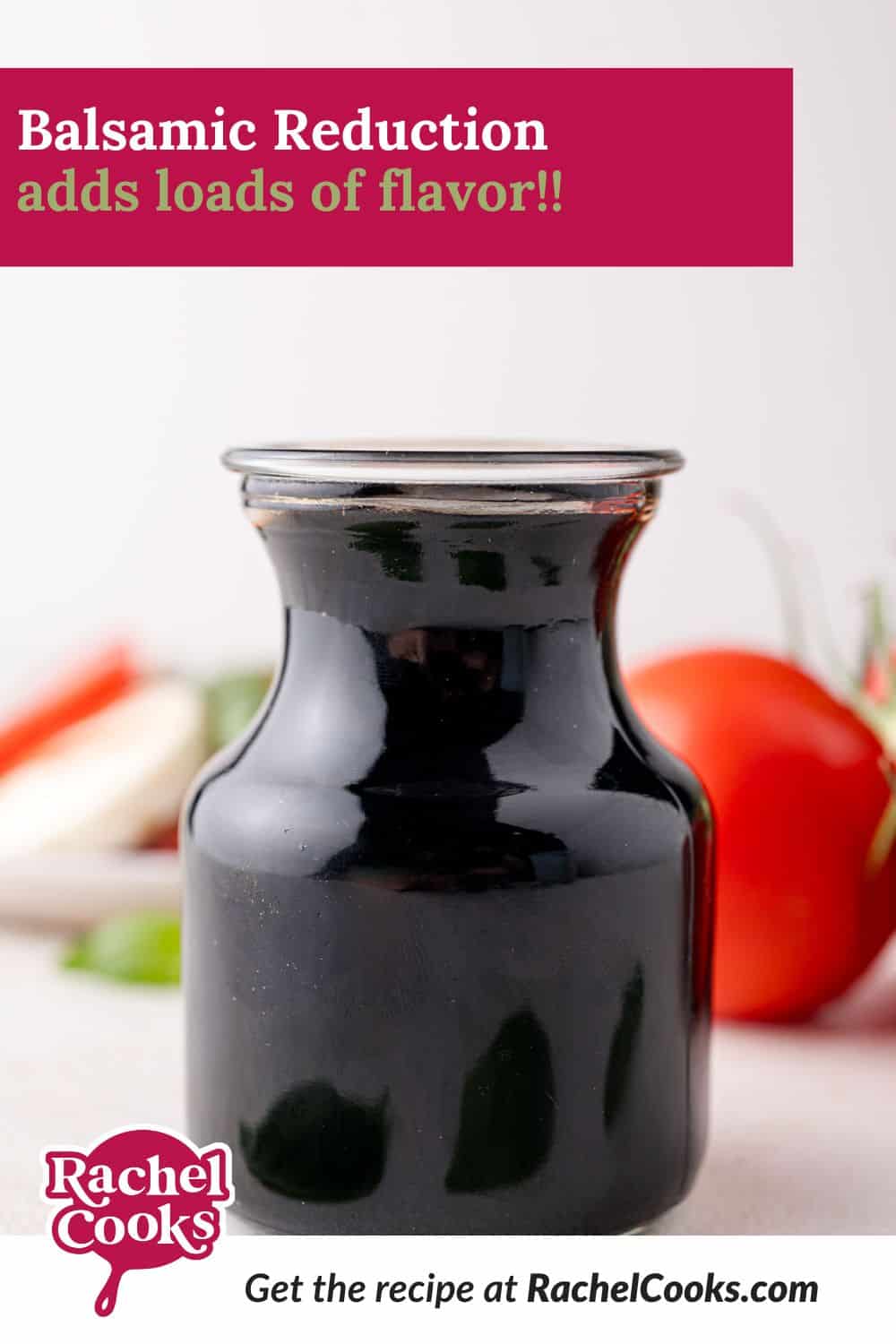
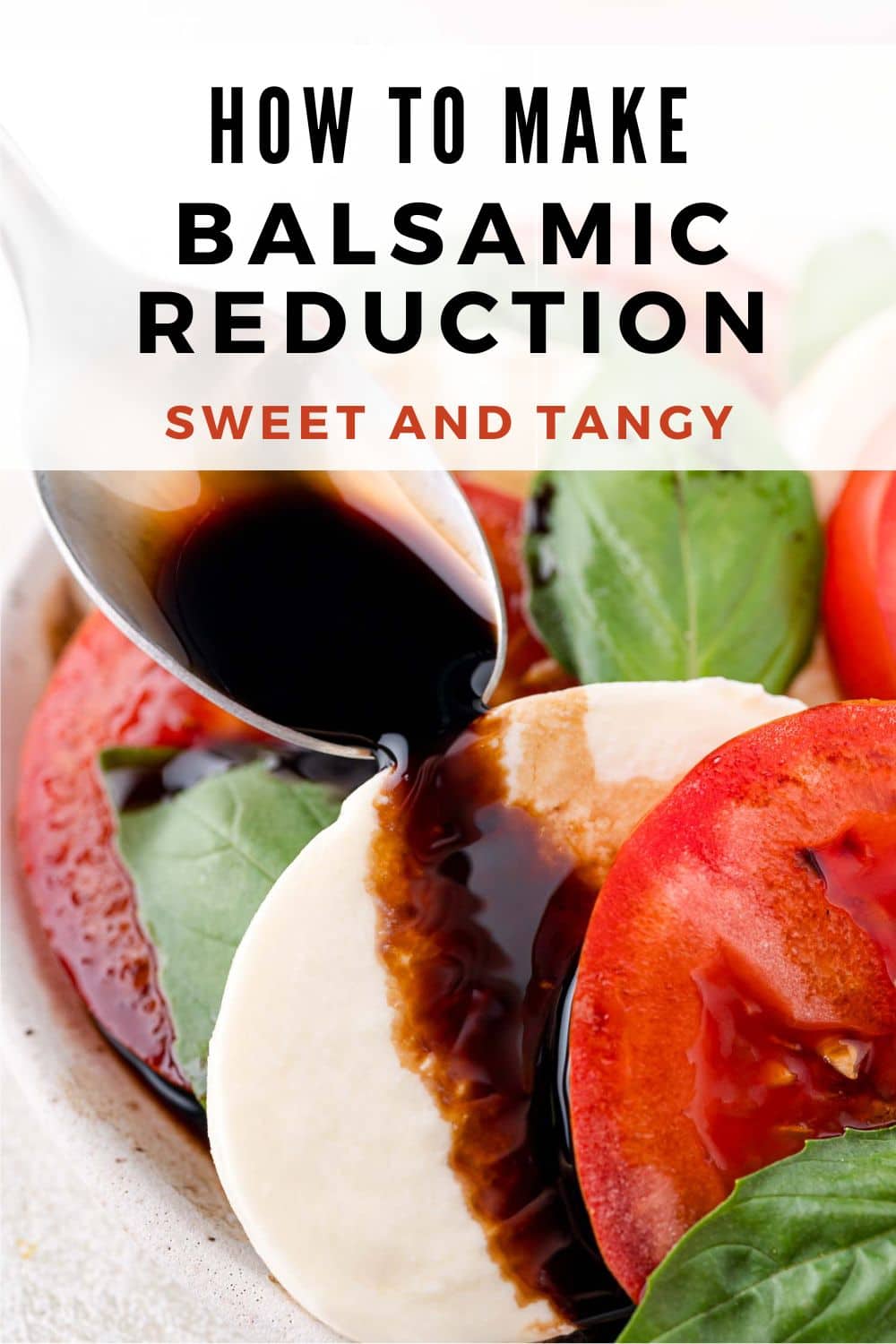
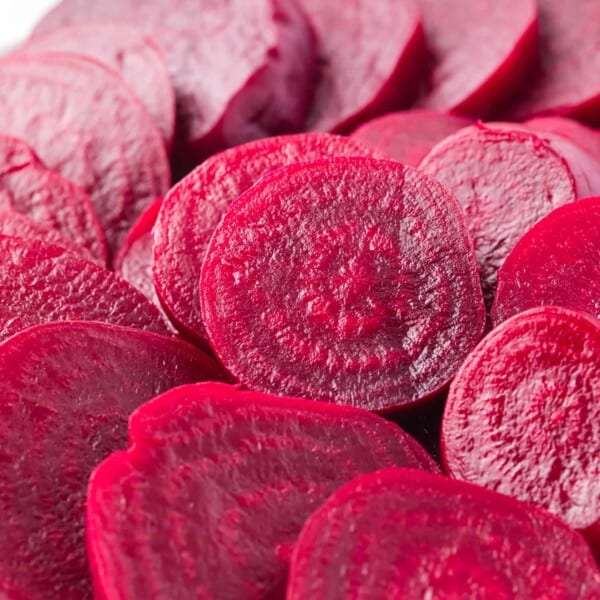
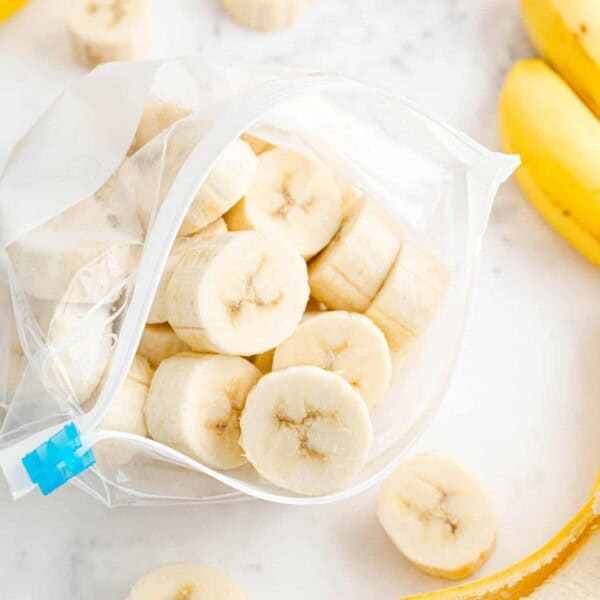
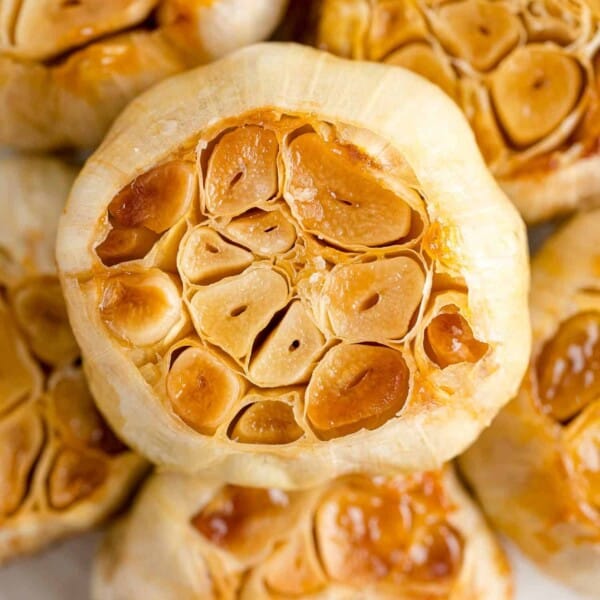
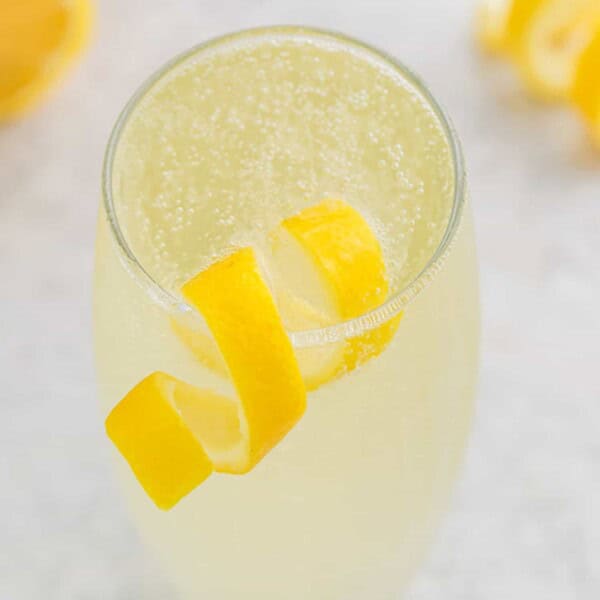
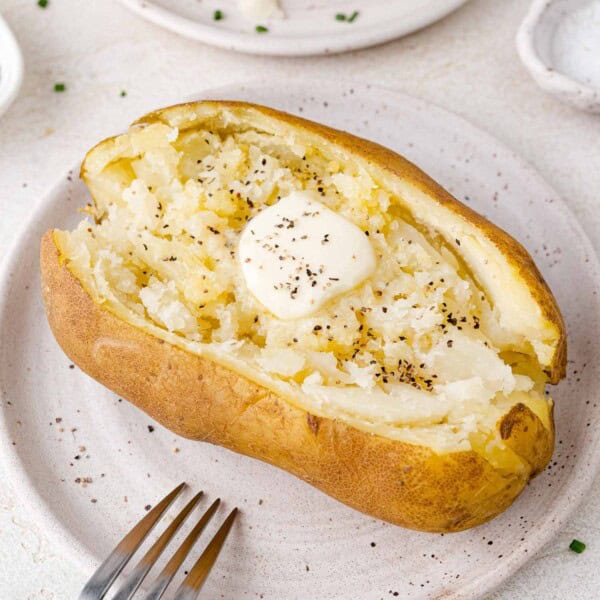

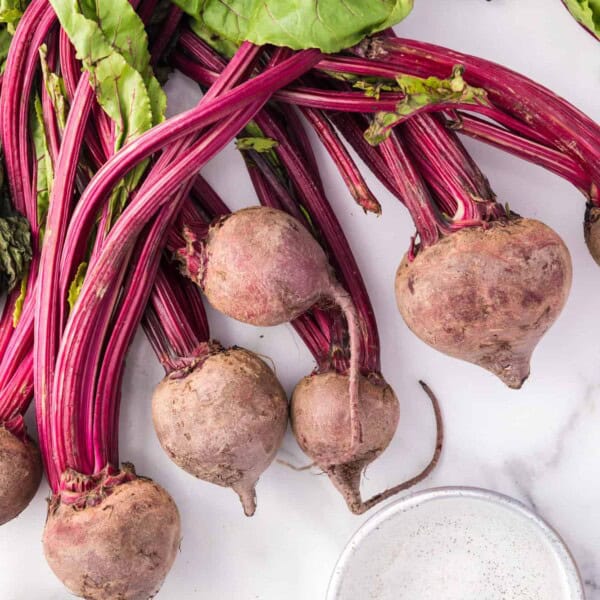
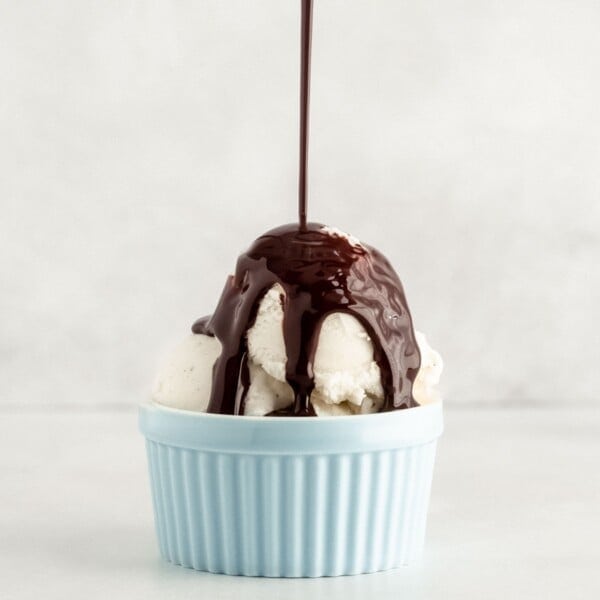









I had to call poison control because of the fumes that burnt my eyes, nose, throat, and lungs. I’m surprised there’s no mention of this being a potential issue. I left it on for under 10 minutes on low heat.
Hi Meg, vinegar does have a strong smell that not everyone can handle. I’m sorry to hear you had a hard time with it. I hope you’ve fully recovered ;)
I think your calorie count is inaccurate.
You’re very right! Thanks for the heads up! All fixed now. :)
Can you use a double boiler?
Should work, but it’s not really necessary and will increase cooking time.
Love it on a burger. mozzarella and balsamic reduction absolute favorite
Yes, so yummy!
Omg! So Good! I did on flat bread with mozzarella roasted tomatoes bacon and scallions and drizzled the glaze over it.It was hit of party. Thank you for sharing?
So glad you liked it! Thanks for taking the time to come back and leave a comment!
The nutritional information is for the entire recipe and not the serving size of 1 tablespoon.
You’re absolutely right – thanks for letting me know about that! I really appreciate it. I corrected it. :)
I made maple balsamic reduction and now it has hardened in the bottle I stored it in. Is there a way to soften it and turn it back to liquid?
Oh no! You may have reduced it a little too far. I’d try putting it in warm water bath to see if that softens it up, but it might be a lost cause. :( You could also try warming it carefully in the microwave if your bottle is microwave-safe. I’d do it on 30% or 40% power and warm it really slowly so it doesn’t cook more…just to kind of melt it? Let me know how it goes.
If people like sweater, drop the balsamic by a 1/2 cup and add in the same amount of a good maple syrup. PERFECT on pork.
Great tip! So good on pork! Thanks Rob!
I love balsamic reduction! Definitely a staple around here!
This turned out so well and it was so easy to make! It’s not going to last very long because I’ve been drizzling it over everything!
I’m so glad you like it, Shannon! Thanks for taking the time to come back and leave a comment!